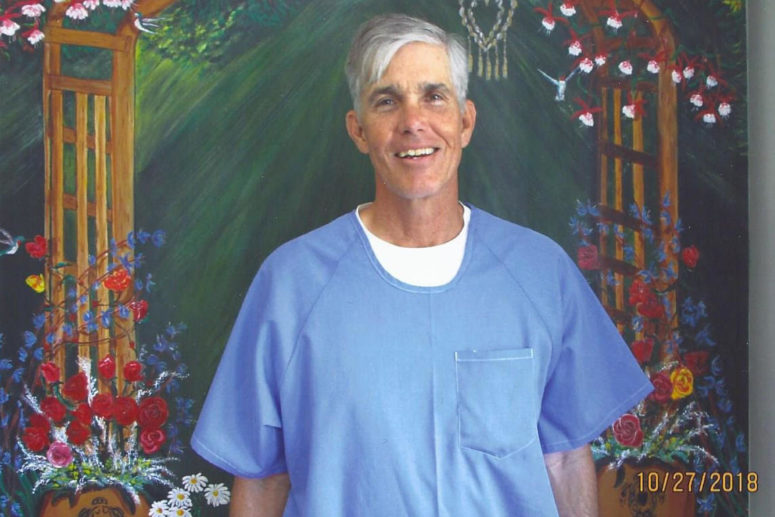In addition to health issues, Hunt’s petition points to numerous trial irregularities and new laws that call for reductions in the sentences of youth offenders
September 4, 2020
Joe Hunt is now 60 years old and is petitioning for a commutation from Governor Gavin Newsom. Arrested at age 24, Hunt is asking for a sentence reduction, citing numerous trial irregularities, his vulnerability to covid, compounded by a diagnosis of cardiomyopathy, and his exemplary prison record.
“It’s a tragic waste — both of taxpayer resources and of a life that could have been spent contributing to society,” said Joe’s brother-in-law Michael Olivier. “Look at all of the things Joe has accomplished while in prison and imagine what could have been.”
Those who have become familiar with the facts know that Hunt has spent his more than three decades of incarceration applying himself to good causes.
As a clerk in the prison law library, he has to date helped over 30 fellow inmates successfully obtain relief from unjust sentences or convictions. Using his financial know-how, Hunt raised over $1 million dollars for his church. And Hunt formed the first men’s support group in his prison. Two prison chaplains, three corrections officers, and his Correctional Counselor have contributed letters on his behalf, praising his conduct and supporting his release.
“In my opinion, Hunt has no inclinations to re-offend,” wrote Correctional Officer M. Saesee. “I would place him solidly in the top one percent as far as suitability for reintegration with society.” Chaplain William Goeke similarly praised Hunt, writing, “The other men look to him for direction and encouragement… his is a voice of healing and compassion.”
The letters from chaplains and prison officials are just a small sample of more than 500 submitted on Hunt’s behalf, all part of a campaign that also includes a staggering 26,000 signatures on a petition supporting Hunt’s release.
Olivier also points to many encouraging developments in California law in the years since Hunt was put behind bars. Based on a greater understanding of cognitive development in young adults, in 2014, California created a system of youth offender parole hearings for inmates whose crimes were committed before the age of 18. Then in 2018, the law was expanded, and the special parole hearings are now offered to inmates sentenced before age 26.
However, those recent changes in youth offender laws exclude inmates who were sentenced to life without parole — which includes Hunt.
“It doesn’t make sense,” Olivier said. “A young adult is a young adult, and if we recognize that sentences which failed to take brain development into account were flawed, then life without parole sentences must be doubly so.”
Though they have found the expansion of opportunities for youth offenders somewhat heartening, Hunt’s family knows they can’t just sit back and wait for the law to evolve — not with Joe’s heart condition, his advancing age, and the coronavirus pandemic. Federal officials also have recognized the increased urgency of compassionate release. U.S. Attorney General William Barr recently ordered officials running federal prisons to immediately maximize the release of prisoners to home confinement during the pandemic.
Hunt was convicted of murder in a case with no body and no physical evidence — only a man who disappeared while out on bail as he faced an FBI investigation for grand theft and fraud. And that questionable starting point led to even more troubling questions about the manner in which the trial was conducted, including an incompetent trial lawyer with a substantial conflict of interest, and a judge who harbored a documented personal conflict with a member of the defense team.
There are substantive reasons to believe that Hunt did not receive a fair trial, says attorney Gary K. Dubcoff. In a scathing 26-page letter supporting Hunt’s commutation, Dubcoff details at length many evidentiary, procedural, legal, and ethical flaws in Hunt’s trial.
The justice system simply did not work in Hunt’s case, Dubcoff says. “I have been practicing criminal trial and appellate work for over three decades, and I have rarely, if ever, seen such a concerted effort on the part of the judiciary to turn a blind eye to facts,” he wrote. Hunt was “convicted by a deplorable combination of judicial misconduct and incompetent, corrupt representation.”
One of the oddest aspects of Hunt’s conviction that points to an unreliable verdict revolves around alleged gunman James Pittman.
Hunt was not sentenced to life in prison for pulling the trigger himself, but because a jury was led to believe he had ordered Pittman to do so.
Yet Pittman’s jury, with additional evidence not discovered until after Hunt’s conviction, acquitted Pittman of the shooting, an outcome totally at odds with that of Hunt’s case.
“It’s baffling,” Olivier said. “How can you think a guy who we learned didn’t shoot anyone was also, somehow, simultaneously forced to shoot someone? Both of these things can’t be true.”
Hunt’s petition to Governor Newsom makes use of all of these arguments: flaws in his trial, the movement to save taxpayer dollars by granting compassionate release to prisoners with health problems, the threat of coronavirus behind bars, his spiritual rehabilitation, his record of nonviolence, his service to fellow inmates and his church, his age at sentencing, and his advancing age today.
“Being 60 years old with a heart condition means Joe is at the highest risk for covid, but the lowest risk for reoffending,” Olivier said. “Everyone in our church is praying that the governor takes notice of that and Joe’s 35 years of peaceful behavior and lets us bring him back home.”
Read More